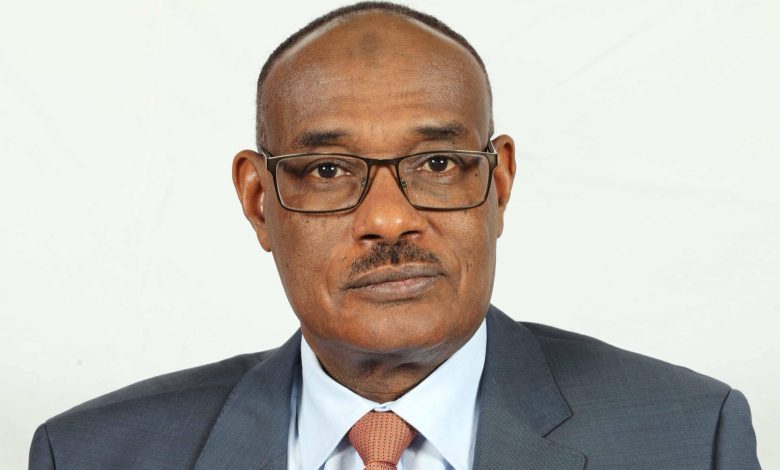When International Justice Polticised: American Award To Haroun Extradition (2-2)

By: Dr.Al Dardiri Mohamed Ahmed
In cases like Sudan, that chamber may take its decision in accordance with Article 17 (3), which gives it the right to decide whether there has been a complete or partial collapse of the national judicial system and that it is no longer available.
However, such a decision shall not be taken except after Sudan has been notified and given the opportunity to present its defenses that justify the continued jurisdiction of its national judiciary.
Thus, it is clear from the perspective of the law that Ahmed Haroun is no longer detained at the present time by the International Criminal Court ICC or wanted before it.
Meanwhile, the International Criminal Court ICC seized the opportunity to activate the principle of “complementarity” to achieve other goals.
In February 2021, that court sent a mission to Khartoum that included twelve investigators headed by Deputy Public Prosecutor James Kirkpatrick to collect the documents, evidence, and testimony that the case needed at the trial stage.
That mission requested the Minister of Justice, Nasr al-Din Abdel Bari, to sign a memorandum of understanding that would allow it to move freely to perform criminal investigation tasks in the Sudanese region and open a permanent office in Sudan. After Bensouda’s term expired and Karim Khan came to the position of Attorney General, the truth of the reasons that prompted Bensouda to send this large investigation mission led by her deputy and to demand that she sign the memorandum and open an office in Sudan was revealed. It turns out that the Criminal Court is in trouble because it does not have enough evidence to bring Ahmed Haroun’s case to court.
The same applies to the cases of President Al-Bashir and Lt.Gen. Abdul Rahim Hussein.
In his report submitted to the Security Council on January 17, 2022, Karim Khan said, “The evidence, particularly that relating to the cases of former President Al-Bashir as well as Abdul Rahim Hussein, should be strengthened.”
The Pre-Trial Chamber of the Court asked him to clarify what he meant by this dangerous statement, since the Chamber had previously brought the charge against the aforementioned persons, which means that it had decided in advance that it was convinced “that there are reasonable grounds to believe that the person has committed a crime within the jurisdiction of the court.”
Karim Khan told her in a response published on the court’s website that immediately upon assuming office, he directed a re-evaluation of the evidence collected by Bensouda in all the cases handled by the prosecution office, most notably the case of Darfur, “ to determine whether there are still reasons to indict the two aforementioned persons, as well as Ahmed.” Haroun ” (paragraph 9 of the Prosecutor’s response to the Pre-Trial Chamber).
The Public Prosecutor stated that his office has concluded that additional evidence must be available if these cases are to be made trial-ready (paragraph 10 of the response).
In clear and clear terms, this means that the evidence available to the public prosecutor against Ahmad Haroun is not sufficient, and perhaps there were no reasonable grounds to bring the accusation in the first place.
But why is this American reward announcement issued at this particular time?
Here I remind the reader of the decision of the Criminal Prosecutor, last July 14, to open investigations into new crimes committed by the RSF Militia in Darfur after the outbreak of this war.
When the criminal prosecutor met with Lt.Gen. Al-Burhan in September 2023 in New York on the sidelines of the UN General Assembly session, he officially informed him of the opening of these new investigations.
Al-Burhan, for his part, expressed to him Sudan’s readiness to cooperate with him.
Nothing emerged from that meeting indicating that the Public Prosecutor had requested the end of the activation of “complementarity” and the extradition of the former wanted persons.
In fact, there was no talk at all about those wanted, or even a question about their condition and fate.
Rather, the focus of the meeting was on new investigations and on enabling those investigating them to perform their duties.
At the end of last week, the Public Prosecutor moved on the ground and on Saturday, January 28, visited Sudanese refugee camps in Chad.
Today, the Public Prosecutor presented a briefing to the Security Council SC on the cases he is following in Darfur, amounting to about twenty minutes, all of which were focused on the new investigations.
He did not address the old cases except in a quick glance that did not exceed one minute. He certainly did not demand that the government of Sudan hand over Ahmed Haroun or any of the accused.
It is expected that the Public Prosecutor will submit a request to the Pre-Trial Chamber of the Court to bring charges against the RSF leaders.
The new indictment may include major names in the Rapid Support RSF Command. This is precisely what concerns the United States.
For her, making such accusations is a political act of the first degree and not a judicial procedure.
Then the United States US decided to intervene proactively to create a “balance” in its well-known way. It is not in its political interest to portray the “international community,” which is an expression referring to the United States US and those with it, as accepting the Rapid Support RSF violations alone.
Then the genius of those in charge of the matter in the US State Department came up with the idea of announcing this award in the cowboy style. As for the requirements of justice, whether in the old investigations or the new ones, that is the last thing America cares about.
January 30, 2024



